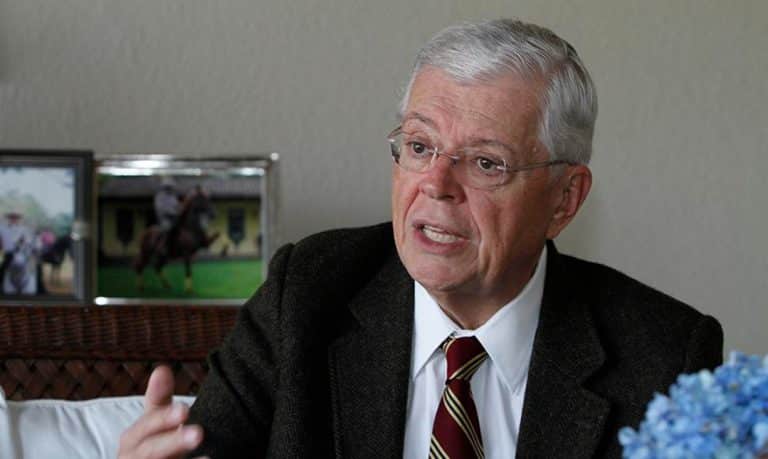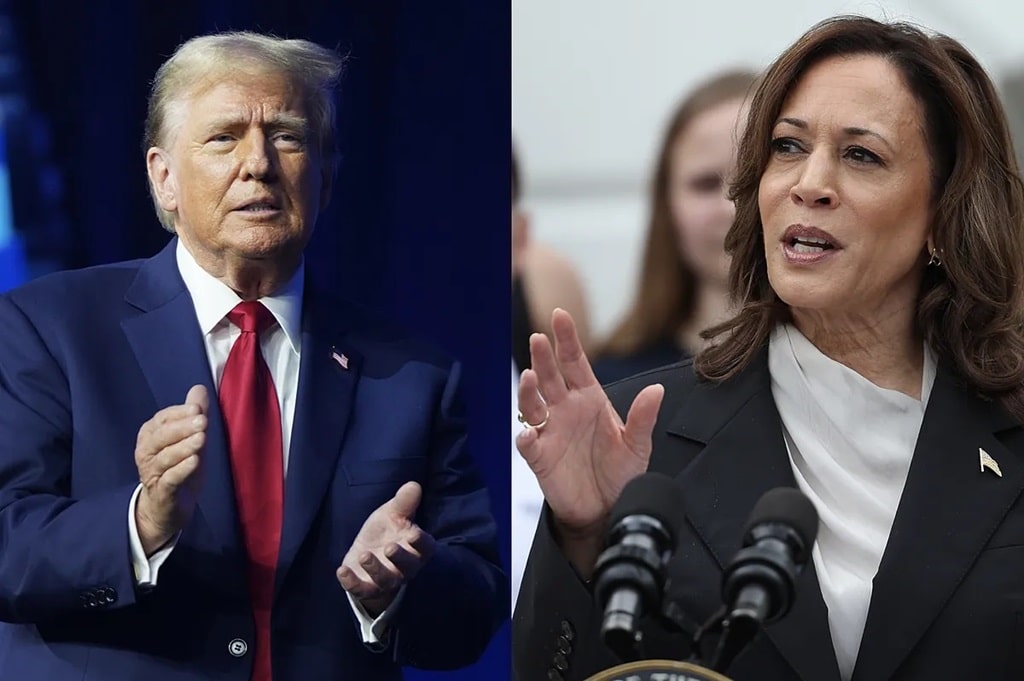22 de octubre 2024

Children of Exile: The Births “Sowing Hope” in the Camp of Nicaraguan Farmers

PUBLICIDAD 1M
PUBLICIDAD 4D
PUBLICIDAD 5D
Former Foreign Minister Aguirre: “There Is an amateurish handling of Foreign Relations”

Foreign Minister Francisco Aguirre Sacasa//Photo: courtesy
Since 2021, Daniel Ortega’s dictatorship has broken diplomatic relations with five countries of various political stripes: Taiwan, the Netherlands, Ecuador, Brazil, and Israel, in addition to the suspension of diplomatic relations with the Vatican.
In an interview on the program Esta Semana, which aired Sunday, October 18, on CONFIDENCIAL’s YouTube channel due to the television censorship imposed by the regime in Nicaragua, we asked former Foreign Minister Francisco Aguirre Sacasa, a political exile in the United States, what Ortega gains from this foreign policy of conflicts and provocations, and what consequences it has for Nicaragua.
“There is an amateurish handling of Ortega’s foreign relations,” responded Aguirre. He warned that actions like the recent break with Israel, the alliance with Iran and Russia, the persecution of the Catholic Church in Nicaragua, and especially the promotion of illegal migration to the US, will provoke a reaction from the winner of the unpredictable US elections. Nicaragua has a privileged economic relationship with the US through the DR-CAFTA trade agreement.
“Either of the two — Kamala Harris or Donald Trump — both Democrats and Republicans could react negatively, and it’s all due to the blunders the Nicaraguan government is making in its international relations,” said the former foreign minister.
Last week, the Ortega regime announced the break in diplomatic relations with Israel for the second time, after cutting ties in 2010 and then restoring them in 2017. Some analysts say this is completely irrelevant. What does this new break in relations with Israel mean?
Francisco Aguirre: I agree with those who say that for Israel, this is irrelevant because Nicaragua is a tiny country with no significant international influence. It’s definitely not a matter of life and death for the Israelis whether Nicaragua supports them or not, or whether Nicaragua aligns itself more with Hamas and Hezbollah.
But it’s not irrelevant to Israel’s friends, particularly the United States. In the US, the Jewish community is very powerful and influential, including in the media. The New York Times and The Washington Post, two of the most important newspapers in the US, are owned and heavily influenced by individuals of Jewish origin. For them, anything that negatively affects Israel is frowned upon.
It hasn’t been widely reported what Nicaragua has done by breaking relations with Israel, but I can assure you of two things: first, no one in Tel Aviv or Jerusalem is crying because Nicaragua no longer recognizes them. Second, it’s highly dangerous within the context of influential US public opinion. This will catch their attention and could provoke, from either with a Democratic or Republican government, a more aggressive stance toward Nicaragua, which is doing everything possible to enter into conflict with the US.
The other issue is that Nicaragua is receiving a wave of people, not only from Latin America but from Asia and Africa. They land in Managua and then continue to the southern US border, heading to the Rio Grande. Immigration is one of the two big issues in these US elections. Once Americans realize that Nicaragua is a gateway facilitating illegal immigration, you’ll see a stronger reaction, which will also be fueled by Nicaragua’s action toward Israel.
This break, which is also perceived as an act of solidarity — the government says with Palestine — is seen as an act of solidarity with Hamas and an alignment with Iran in the Middle Eastern crisis. What does Nicaragua gain from this, and what negative consequences could it face?
Geopolitically, it gains nothing. But Iran, as one of the largest oil producers in the world, has a lot of money. So, it wouldn’t surprise me if there’s a financial dimension that benefits the ruling dynasty. I imagine that’s one of the reasons why the Nicaraguan government is cozying up to countries that are toxic to the US.
Iran is seen very poorly by the US right now, especially due to its support of Hezbollah. All these things hurt Nicaragua and could eventually result in a reaction from the US.
Nicaragua is not only cozying up to Israel’s enemies but is also persecuting the Catholic Church. In US Catholic parishes there’s increasing mention of the government’s harassment of the Catholic Church, which is bigger than any Protestant sect in the US, and Church newspapers are already highlighting the persecution of the Catholic Church in Nicaragua. This also contributes to Nicaragua’s terrible image in the US.
This break with Israel is the fifth diplomatic severance since the 2021 electoral farce when Ortega proclaimed his re-election. First, it was Taiwan in 2021, to restore relations with the People’s Republic of China. Then, the Netherlands in 2022. In 2023, relations with the Vatican were suspended, which for many is a de facto break. In 2024, relations were broken with Ecuador, then Brazil, which was once a political ally of the regime, and now Israel. Is there a pattern in Ortega’s foreign policy of diplomatic breakups?
What I see is an amateurish handling of Nicaragua’s international relations. I don’t know who’s behind it. For example, regarding Brazil, it’s the largest and most powerful country in Latin America, and it’s in the Western Hemisphere. It’s a Latin American country.
Nicaragua is not only alienating Israel and provoking the US by facilitating illegal immigration, but it’s also seeking another way to draw attention from the US government and people, such as through the persecution of the Catholic Church.
It’s as if they — in their desire to project themselves as radicals — are picking fights with the most important countries in the world. What does Iran mean to Nicaragua? Maybe some financial support for the dynasty, but I don’t see large Iranian investments. There never were significant Iranian investments in Nicaragua, and there won’t be.
What’s clear is a good political alignment with Russia, China, Iran, Cuba, Venezuela, Syria, and North Korea. Despite this, and Nicaragua being out of the Organization of American States, it still has some diplomatic space with a few Latin American countries. There’s Mexico, for example. Honduras, Bolivia, and others. Can we say today that Ortega’s dictatorship is isolated in Latin America?
The countries with serious governments in Latin America, starting with Mexico, whose president is of Jewish descent, won’t view Nicaragua’s stance on Israel favorably. The other important Latin American countries, including our neighbors, will either try to take advantage of Nicaragua’s international mismanagement to benefit themselves or forget about Nicaragua.
It’s hard for a country like Costa Rica, which has half a million Nicaraguans there, to forget about Nicaragua. But the fact that there are half a million Nicaraguans, at least in Costa Rica, as political exiles, in Central America’s Switzerland, is another negative factor for Nicaragua.
Ortega has tried to sell himself as a platform for Russia’s interests in Central America, even though Russia has no economic presence in the region like China does. Russia is seeking political influence in SICA, Parlacen, and especially in its security training policy with the police and its espionage policy. How do you see Central America’s reaction to Ortega’s position as a spearhead for Russia?
It’s an issue making some waves in the Central American isthmus. There is now a close relationship between the Nicaraguan Army and the Russian Army. Russia does have some influence in Nicaragua. When I was foreign minister the Russian government was undergoing significant evolution, the Soviet Union was disappearing, along with the dictatorship, which is what the Sandinistas now have with Daniel and Rosario. And it became a democratic country in the European style. In part, that has regressed. But honestly, for a leader like Putin, this relationship with Nicaragua could serve as an irritant, a bargaining chip for a potential negotiation with the US. However, the damage this does to Nicaragua’s relationship with the US is far greater.

The US is entering the final stretch of an election campaign where, at least as of today, the results seem unpredictable and will be decided in a small number of states. Can we foresee or predict what a future Kamala Harris presidency or a new Donald Trump presidency would mean for Nicaragua-US bilateral relations?
I agree with your analysis of the elections. It’s very tight. There are three key states: Pennsylvania, Wisconsin, and Michigan. How those three states go could indicate which of the two candidates will win. But the truth is, no US government will indefinitely tolerate the existence of a government in Nicaragua that is continuously provoking not only Central America but also the Western Hemisphere, including the US. That seems very unlikely to me.
A possible US reaction, either from a Republican or Democratic government, would be to remove Nicaragua from DR-CAFTA. Nicaragua has privileged access to the US market through DR-CAFTA. We economically depend on the US and on Nicaraguans who send billions of dollars annually in remittances. Imagine what would happen if the US government began, for example, by removing Nicaragua from DR-CAFTA, denying it privileged access to the US, or suspending the sending of remittances to Nicaragua.
But the impact this could have is also a further increase in Nicaraguan migration to the US, which is their central concern. Some people say, “The US won’t remove Nicaragua from CAFTA because of the collateral effect it could have on migration.”
I don’t share that view because, with or without CAFTA, Nicaraguans have been migrating in larger numbers to the US. It’s not because there’s no prosperity in Nicaragua; we have access to the US market. It’s because people are fed up with living in Nicaragua.
Let me give you an anecdote. One of the police officers who guarded me during the more than 500 days I was in prison called me the other day and said, “Don Francisco, I’m here in Seattle, Washington. I managed to migrate, illegally of course, from Managua, Nicaragua, to Seattle, Washington.” He didn’t leave because he had no resources. He’s a middle-class young man, someone who would do much good in Nicaragua, and people are simply looking for a way to leave Nicaragua.
But there’s another issue. Nicaragua is facilitating the arrival of people to the US border through flights arriving in Nicaragua full of people from Asia, Africa, and certain Latin American countries. And that’s dynamite.
Is the CAFTA issue you mentioned more directly associated with a possible Democratic or Republican administration?
Either one. We had the experience of Trump’s first presidency, and beyond calling Nicaragua part of the “troika of tyranny,” not much happened. But both Democrats and Republicans could react negatively, all depending on the blunders the Nicaraguan government commits in its international relations.
This article was published in Spanish in Confidencial and translated by Havana Times. To get the most relevant news from our English coverage delivered straight to your inbox, subscribe to The Dispatch.
PUBLICIDAD 3M
Periodista nicaragüense, exiliado en Costa Rica. Fundador y director de Confidencial y Esta Semana. Miembro del Consejo Rector de la Fundación Gabo. Ha sido Knight Fellow en la Universidad de Stanford (1997-1998) y profesor visitante en la Maestría de Periodismo de la Universidad de Berkeley, California (1998-1999). En mayo 2009, obtuvo el Premio a la Libertad de Expresión en Iberoamérica, de Casa América Cataluña (España). En octubre de 2010 recibió el Premio Maria Moors Cabot de la Escuela de Periodismo de la Universidad de Columbia en Nueva York. En 2021 obtuvo el Premio Ortega y Gasset por su trayectoria periodística.
PUBLICIDAD 3D